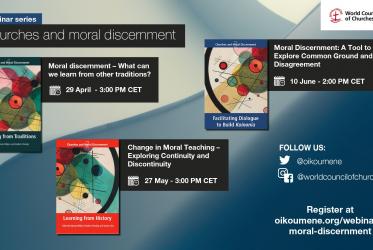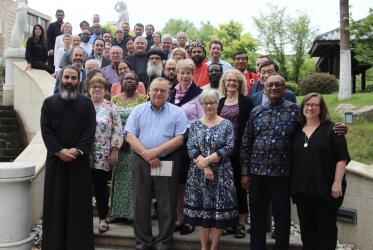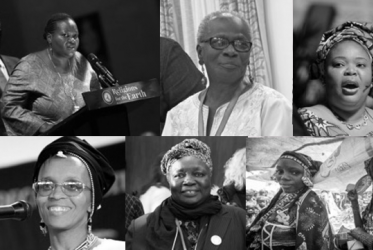Displaying 41 - 60 of 447
Churches and moral discernment: A series of three webinars by WCC Faith and Order Commission
29 April - 15 June 2021
Online-By registration only
Réunion en ligne de la Commission de Foi et constitution du COE
14 January 2021
ÖRK-Kommission für Glauben und Kirchenverfassung tagt online
14 January 2021
WCC Faith and Order Commission to convene online
12 January 2021











